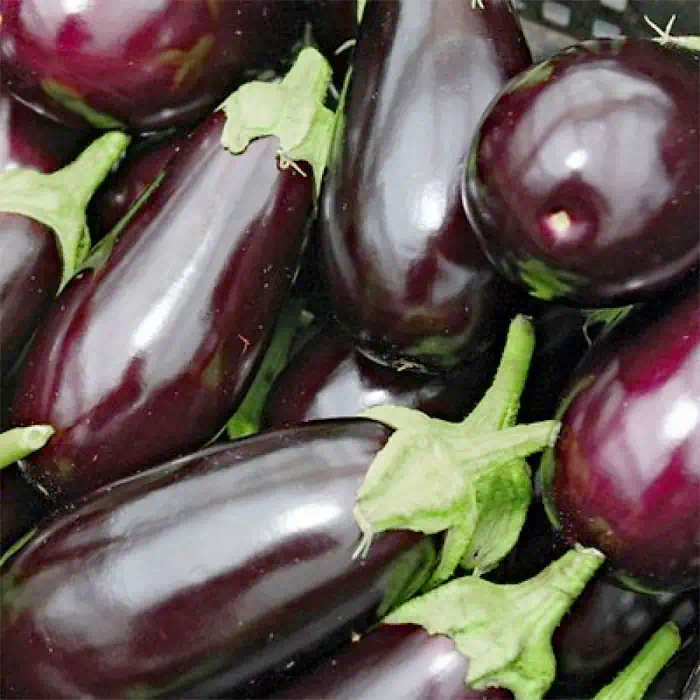 856-691-2497
| Fax 856-692-9007
856-691-2497
| Fax 856-692-9007
 856-691-2497
| Fax 856-692-9007
856-691-2497
| Fax 856-692-9007

Eggplants provide an array of nutrients and health benefits, and their mild, adaptable flavor allows them to be prepared in endless ways. Keep reading to learn all about selecting, storing, and cooking with eggplant to take advantage of its fabulous qualities.
Eggplants, also known as aubergines, belong to the nightshade family of vegetables, which also includes tomatoes, peppers and potatoes. Native to Asia, eggplants are now grown in warm climates worldwide. There are many different varieties ranging in size, shape and color – from the classic deep purple eggplants to long, slender Japanese varieties and small, round white eggplants.
Regardless of the type, eggplants have a creamy, meaty flesh and hundreds of small edible seeds within their skin. Their flavor is mildly sweet with a hint of bitterness. When cooked, eggplants become tender with a silky, soft texture that readily soaks up surrounding flavors.
Eggplants are low in calories, high in fiber, and packed with important nutrients, including fiber, vitamin C, vitamin K, potassium, magnesium, manganese, folate, and more. In particular, nasunin – an antioxidant only found in eggplants – helps protect cells from damage. Eggplants also contain chlorogenic acid, another powerful antioxidant.
With their stellar nutritional content, eggplants offer several potential health benefits:
Choose eggplants that are smooth-skinned without bruises or blemishes. They should feel heavy for their size with tight, glossy skin. Press on the outside to ensure the flesh is firm, not mushy. Smaller eggplants tend to be less bitter and fewer seeds.
Eggplants are sensitive to cold and cannot be refrigerated for more than 1-2 days. For longer storage, place unwashed eggplants in a plastic bag in a cool area (around 50°F). They will keep for up to a week.
Rinse eggplants just before using. Trim off the green cap and stem. You can peel eggplants if desired, but the skin is edible and contains beneficial nutrients. Slice, dice or cube eggplants for cooking. Exposure to air causes the flesh to quickly brown – you can salt slices and rinse or coat in lemon juice to prevent this.
Eggplant is beloved for its flavor-absorbing quality and smooth, silky texture when cooked. It pairs wonderfully with spices, garlic, tomatoes, Parmesan cheese and herbs. From mains to sides, appetizers and more, eggplants are endlessly versatile in the kitchen. Here are some of the more basic, classic ways to cook eggplant:
Try these yummy recipes for Curried Eggplant With Tomatoes and Basil Recipe and Eggplant "Bacon"!
Eggplants, with their impressive nutritional profile and culinary versatility, deserve a prominent place in your kitchen. Whether you're preparing a hearty eggplant parmigiana, a refreshing baba ganoush, or experimenting with your own creative dishes, these purple wonders are sure to impress your taste buds. So, the next time you're out shopping, don't hesitate to grab a few eggplants and embark on your own eggplant extravaganza.